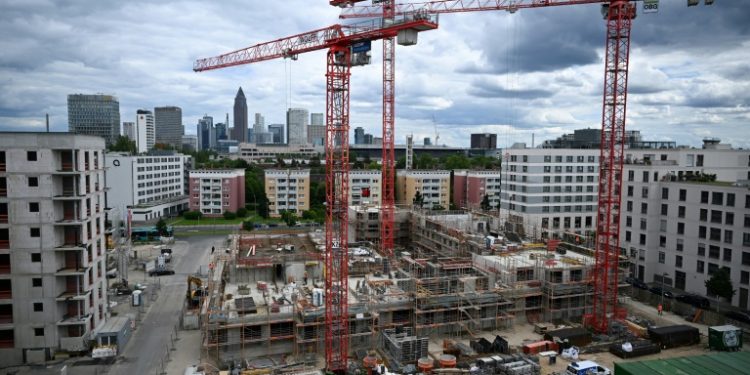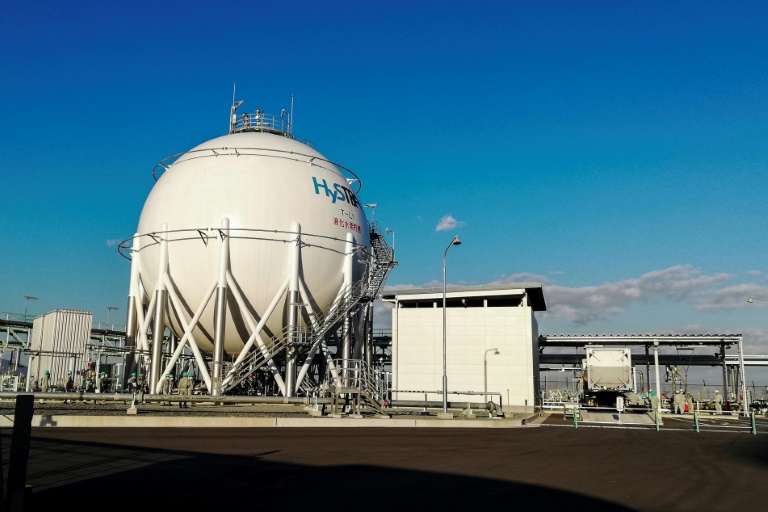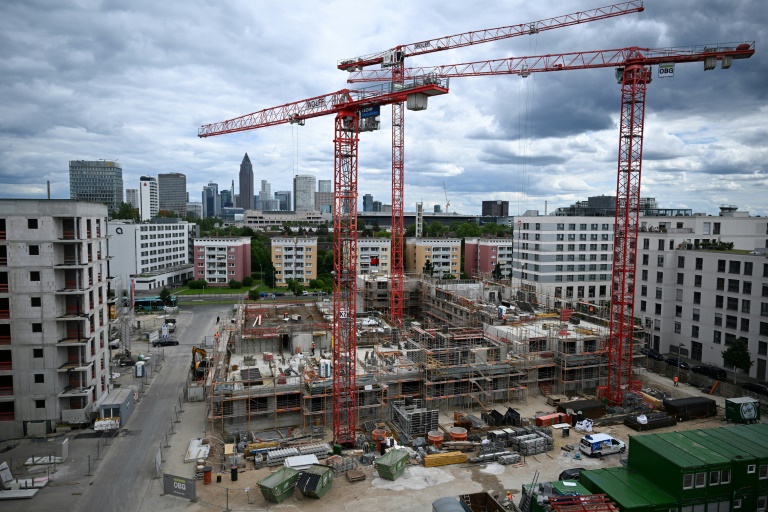Frankfurt (Germany) (AFP) – In the west Frankfurt suburbs on a plot wedged between a motorway and a wooded park, excavators are preparing the ground for 400 new apartments. The busy work at the site in Germany is a rare sign of activity in an industry holding out for a fall in interest rates to get back on its feet.
Frankfurt’s municipal housing group ABG Holding and its financial partner LBBW Immobilien signed off on the project before things turned bad for the construction sector. The coronavirus pandemic followed by the Russian invasion of Ukraine sent the costs of materials spiralling upwards and the subsequent surge in inflation forced the European Central Bank to start hiking fast.
But a glimmer of hope may be in sight as the ECB is poised to start lowering rates when its governors meet on Thursday.
“The crisis was ultimately triggered by the interest rate increase,” said Frank Berlepp, director of LBBW Immobilien. The costs of construction rose and to cover the increase, investors are demanding “rents in excess of 20 euros ($22) per square-meter, which almost no one can pay”, according to Frank Junker, the head of ABG Holding.
– ‘Completely collapsed’ –
“Demand for condominiums has completely collapsed,” Berlepp told AFP.
Buying a family home depends on making a bet that things will get better for buyers, but “without a cut in interest rates, the situation will not change”, said Berlepp.
Last year, some 294,000 new homes were built in Germany, just under the level of 2022, according to the federal statistics agency Destatis.That figure is still well below the target of 400,000 new homes a year set by Chancellor Olaf Scholz’s government to try and sate growing demand in cities. But with a drop in the number of approvals last year to its lowest level since 2012, the outlook does not look much better.
A sharp slowdown in the number of sales, too few new builds, rising prices and a difficult time getting on to the property ladder are a few of the symptoms of the housing crisis seen across Europe.
The ECB’s benchmark rate currently sits at an all-time high of four percent, after policymakers dialled up borrowing costs to counter soaring inflation.
But the first cut might not be enough to completely ease the pain for homeowners like Siobhan Mortimer from Ireland.
The 51-year-old lost her job as a tour guide during the pandemic and is struggling to cover the repayments for her home in Dublin, with the interest on the mortgage currently fixed at three percent.
“My mortgage is up for renewal in June 2024, I don’t think I would qualify for a new mortgage after the ECB’s interest rate hikes,” said Mortimer, adding she hoped borrowing costs would fall faster.
– Mortgage woes –
The situation is just as difficult for those on variable-interest mortgages, where repayments have climbed as the ECB has hiked rates.
Terry, from County Meath in Ireland, has seen his repayments go from 850 euros to 1,000 euros a month in a year.
“I tried switching to a fixed deal when interest rates started going up fast but the bank said no,” said the 42-year-old father of three.
“I’m still in arrears and the mortgage is almost fifty percent of my take-home pay now,” he told AFP.
“A rate cut by the ECB would be good news but only if the banks pass it on to their customers quickly.”
In Germany, analysts like Jochen Moebert from Deutsche bank believe the housing sector’s darkest days could be over “towards the end of 2024”.
Moebert points towards the stabilisation in the number of approvals and the “positive impact” of recent changes to amortisation rules for the construction sector passed by the government in Berlin.
“However, a boom like the one between 2009 and 2022 will not happen again any time soon,” Moebert said.
For that to happen, interest rates would need to be “significantly lower” than they are now, a distant prospect while inflation lingers.
© 2024 AFP




















